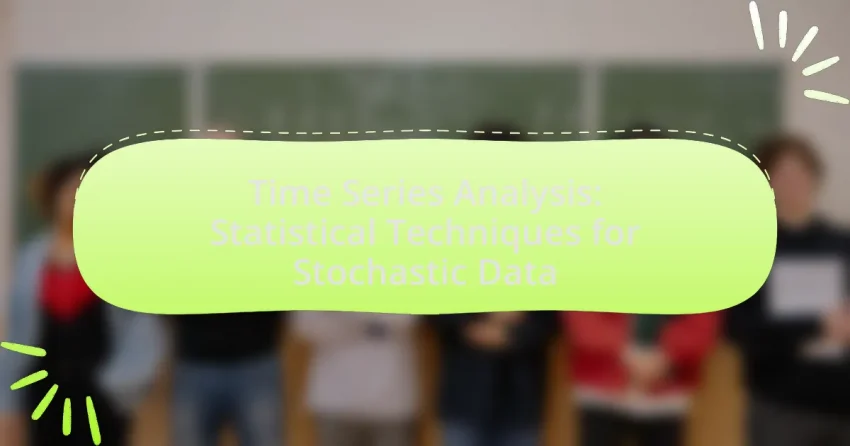Stochastic processes are mathematical frameworks that describe systems evolving over time with inherent randomness, while quantum computing leverages quantum mechanics principles to perform calculations more efficiently than classical computers. This article explores the intersection of these two fields, highlighting how stochastic processes are applied in various domains such as finance, biology, and telecommunications, and their…
Stochastic Simulation Techniques for Traffic Flow Analysis
Stochastic simulation techniques for traffic flow analysis are advanced methods that incorporate randomness and variability to model and predict traffic behavior, addressing the uncertainties inherent in traffic systems. This article explores the differences between stochastic and traditional deterministic models, highlighting the key characteristics and applications of stochastic simulations in traffic management and urban planning. It…
Analyzing Patient Flow in Hospitals with Queueing Theory
Analyzing patient flow in hospitals with queueing theory involves the application of mathematical models to optimize patient movement through various stages of care. This article explores the principles of queueing theory relevant to healthcare, including arrival rates, service rates, and queue discipline, and discusses how different queueing models can impact patient flow and hospital efficiency….
Time Series Analysis: Statistical Techniques for Stochastic Data
Time series analysis is a statistical technique used to analyze time-ordered data points to identify trends, patterns, and seasonal variations, playing a crucial role in fields such as economics, finance, and environmental science. The article explores the definition, key characteristics, and importance of time series analysis, emphasizing its application in forecasting and decision-making. It discusses…
Practical Applications of Stochastic Differential Equations
Stochastic Differential Equations (SDEs) are mathematical models that incorporate randomness to describe systems affected by uncertainty, making them essential in fields such as finance, physics, biology, and engineering. This article explores the significance of SDEs, highlighting their differences from ordinary differential equations, key components, and the importance of randomness in modeling. It discusses various applications,…
Statistical Quality Control in Stochastic Processes: Tools and Techniques
Statistical Quality Control (SQC) in Stochastic Processes involves the application of statistical methods to monitor and control processes characterized by randomness and variability. The article outlines key principles of SQC, including the use of control charts, process capability analysis, and acceptance sampling, which are essential for maintaining product quality across various industries such as manufacturing,…
Using Stochastic Models to Optimize Supply Chain Management
Stochastic models are mathematical frameworks that incorporate randomness and uncertainty to enhance supply chain management by predicting and optimizing performance. This article explores the differences between stochastic and deterministic models, highlighting the key characteristics and importance of stochastic models in addressing demand variability, lead times, and supply disruptions. It discusses various types of stochastic models,…
Introduction to Stochastic Processes: Key Statistical Methods for Beginners
Stochastic processes are mathematical frameworks that describe systems evolving over time with inherent randomness, distinguishing them from deterministic processes. This article provides a comprehensive overview of stochastic processes, including their key characteristics, types such as Markov and Poisson processes, and their applications in fields like finance, telecommunications, and biology. It also discusses essential statistical methods,…
Exploring the Central Limit Theorem in Stochastic Processes
The Central Limit Theorem (CLT) is a fundamental principle in probability theory and statistics, stating that the sum of a large number of independent and identically distributed random variables will tend to follow a normal distribution as the sample size increases. This article explores the application of the CLT in stochastic processes, highlighting its key…
Monte Carlo Simulations: A Comprehensive Guide for Stochastic Analysis
Monte Carlo simulations are computational algorithms that utilize repeated random sampling to model the probability of various outcomes in uncertain processes, such as financial forecasting and risk assessment. This article provides a comprehensive guide to Monte Carlo simulations, detailing their operational mechanics, key components, and significance in stochastic analysis. It explores the advantages of Monte…









